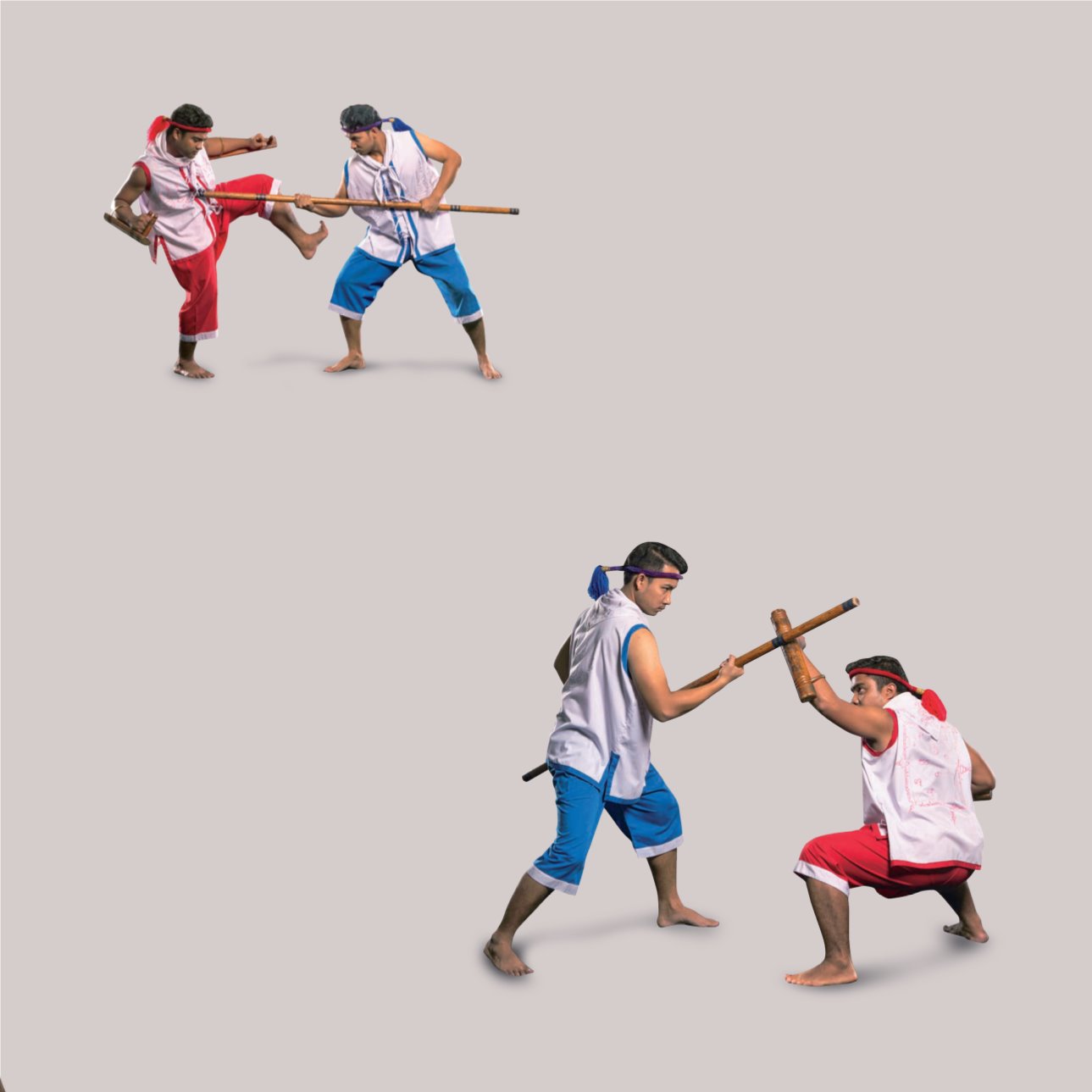

Folk Games and Sports
|
179
Krabi-Krabong are mostly played in a pair of weapons, such as
Krabi versus Krabi (sword versus sword), Phlong versus Phlong (stick
versus stick), Ngao versus Ngao (halberd versus halberd), Phlong versus
short stick. It can be added with group or multiple pairs, or
“Samban”
fight which is one fighting with two people. The pleasure of watching
Krabi-Krabong, in addition to the thrill of the fight, is the instrumental
music played during the performance. The music is selected to match
each of weapons in the dance, such as Krabi (sword), using the song
“Krabi Lila”
;
“Dab Song Mue”
(dual-handed backsword), using the
song
“Champathet or Khmer Song Khrueng; “Ngao (halberd), using
the song “Khuen Ma”
(board the horse);
“Phlong”
(stick), using the
song Long Song or Khuen Phlap Phla; Sam Ban battle, using the song
Pleang Krao Nok or Farang Ram Thao.
The practice of Thailand’s identity martial arts such as Krabi-
Krabong has both physical and mental benefits. It can help develop
personality; improve physical efficiency; enhance the muscle strength,
balance, responsive movement; practice observations and intelligence
by learning how to study strategic locations, environment and the
postures of the opponent; and train mind to be strong and patient, as
Krabi-Krabong had been used to maintain the country’s sovereignty.
• Tee Lai Pai Klab (hitting back and forth stance)
• Tee Lai Pai Klab (hitting back and forth stance)
“
The name of Krabi–Krabong
is assumed to originate from
Ramayana. The word Krabi refers
to the head of monkeys (Hanuman),
holding a short trident. The small
monkeys move very fast and some of
them use daggers. The word Krabong
refers to giants carrying clubs as their
weapon. Therefore, “Krabi” is used
as a generic term for short weapons
such as swords, scimitars, bucklers,
arm shields, daggers. “Krabong” refers
to long weapons like sticks, clubs,
halberds, lance, and spears. These
are also evident in plays about the
battle between the monkeys and
giants. Their popular weapons are the
pairs of short sticks (Krabi) and clubs
(Krabong).
”


















